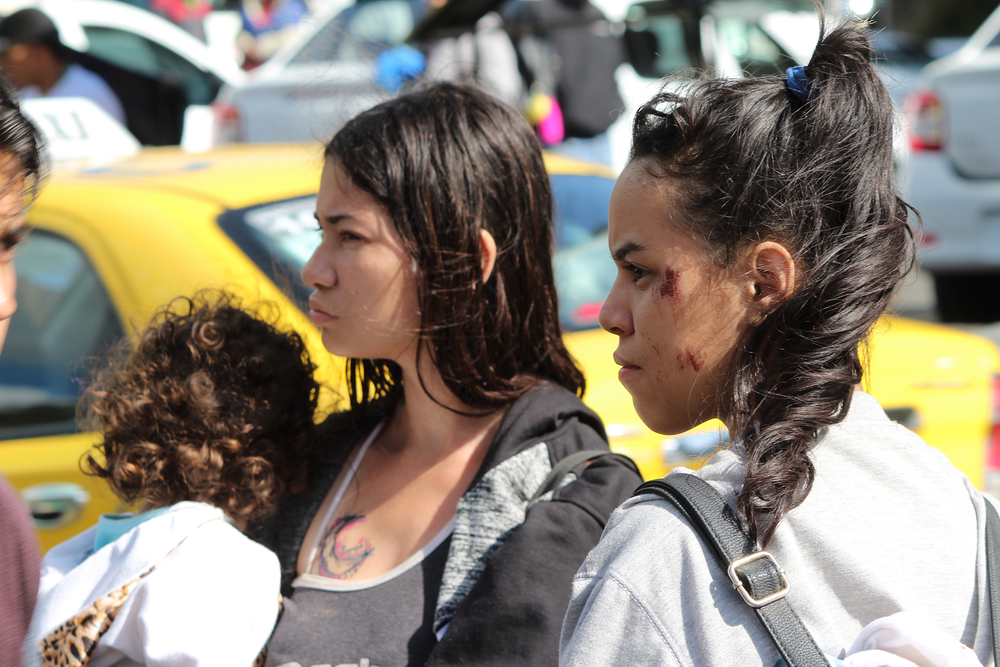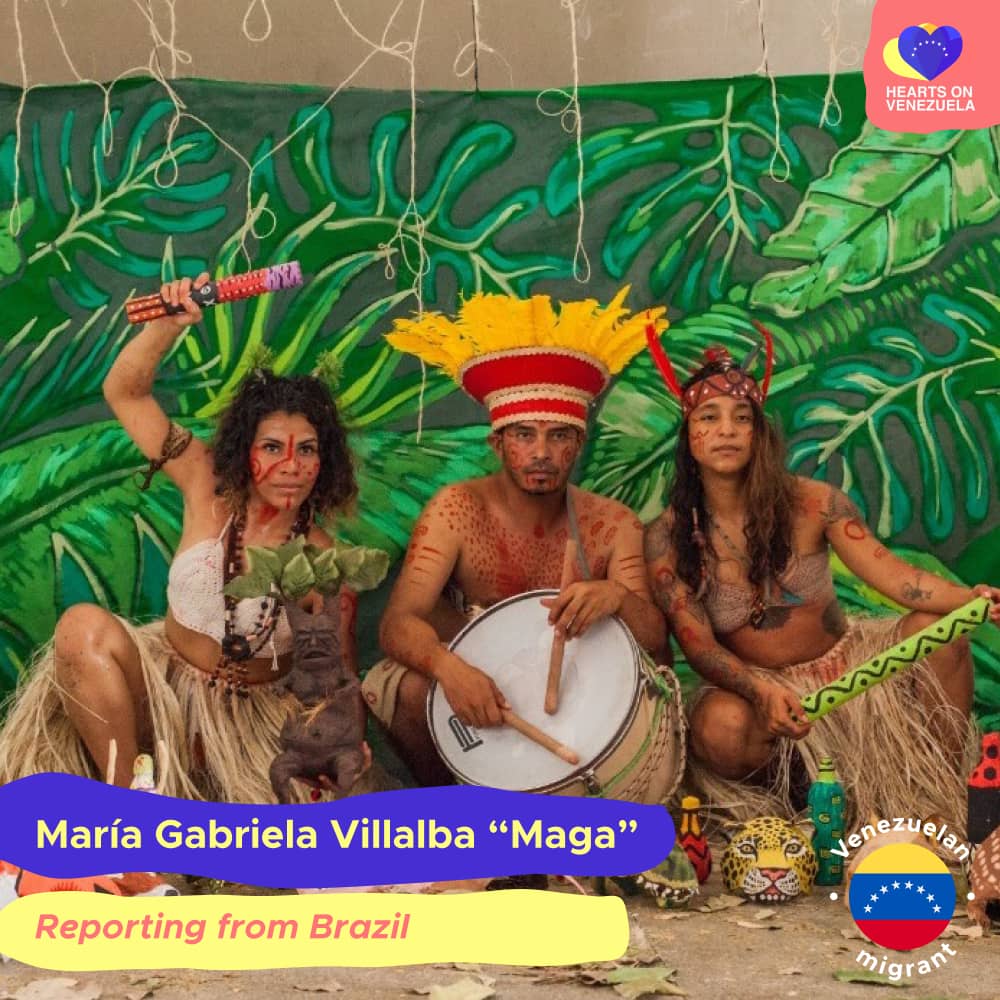The serious human rights situation and the commission of possible crimes against humanity in Venezuela have motivated the international community to activate different mechanisms aimed at ensuring the protection of the rights of the population, investigating incidents of violence and determining individual criminal responsibilities. These mechanisms include the International Independent Fact-Finding Mission (the Mission), the Office of the United Nations High Commissioner for Human Rights (OHCHR) and the investigation by the International Criminal Court (ICC), all of which have proven to complement each other despite holding different mandates.
This complementarity does indeed demonstrate the need for all three to continue working on the Venezuelan crisis and making contributions from their respective fields of action. Hence, the 51st session of the Human Rights Council scheduled for September 2022 will be of particular importance for the situation in Venezuela, since it will define the continuation of the fact-finding mission and the mandate of the OHCHR for a new period.

Three bodies, three visions of the same reality
The complementarity of these three mechanisms is essential to understand the systematic human rights violations that have occurred in the country since 2014 and to prevent them from going unpunished. The differences between the three are also important to understand their complementarity.
Resolutions A/HRC/RES/42/25 and A/HRC/RES/45/20 gave the Fact-Finding Mission a mandate to investigate extrajudicial killings, enforced disappearances, arbitrary detentions, torture and other cruel, inhuman or degrading treatment, including sexual and gender-based violence that have occurred since 2014. All with the aim of combating impunity, ensuring full accountability and guaranteeing justice for victims. The impact of the findings of the Mission on the understanding of the causes and consequences of the serious human rights violations that have occurred in the country since 2014 is unquestionable.
For its part, the Office of the Prosecutor of the ICC is conducting an investigation to determine the commission of a widespread and/or systematic attack against the civilian population under a State policy in Venezuela, for which the Office has focused on potential crimes against humanity committed in the country since at least April 2017, although there is still the possibility of including possible crimes committed since 2014.
Although the specific crimes under investigation are yet to be disclosed, the preliminary examination determined that they include imprisonment or other serious deprivation of physical liberty, torture, rape or other forms of sexual violence of comparable gravity, and the persecution of a group or collectivity with its own identity based on political grounds.
For its part, the primary objective of OHCHR has been to provide technical assistance to the State and monitor the human rights situation in Venezuela, in order to, among other things, prevent the recurrence of violations, increase compliance with the recommendations issued by international human rights mechanisms, and strengthen the rule of law and accountability for the commission of the violations.
Differences in the standard of proof used by the mechanisms
In addition to the differences in their mandates, the three bodies mentioned above conduct their investigations under different standards of proof. They all have different levels of rigor in analyzing the evidence and the probability of the facts. Hence, even when faced with the same evidence, each mechanism may reach different conclusions. The least rigorous standard is used by the OHCHR, known as “more likely than not”. Its accreditation requires examining the context of the situation and the public or evidentiary support that the allegations of human rights violations may have, in order to conclude whether it is more likely than not that the violation has been committed.
At the ICC, the standard of proof increases as the process progresses. During the preliminary examination and at the beginning of the investigation, the Office of the Prosecutor seeks a “reasonable basis to believe” a crime has been committed before identifying the alleged perpetrators. This standard requires a sound or reasonable justification to believe that crimes within the jurisdiction of the ICC have been or are being committed; the purpose of this is to avoid opening or conducting investigations on unjustified, frivolous or political grounds.
This standard is the least rigorous of the Rome Statute and is only applicable in procedural stages that do not involve individualized subjects. On the other hand, the issuance of an arrest warrant, the confirmation of charges or the determination of the innocence or guilt of the individual require a raise in the standard and the determination of individual responsibilities “beyond reasonable doubt” during the trial.
For its part, the threshold used by the Fact-Finding Mission is “reasonable grounds to believe”. This standard is considered to be met when factual information has been gathered that demonstrates to an objective and ordinarily prudent observer that the incident occurred as described within a reasonable degree of certainty. The application of this standard makes it possible to determine whether a human rights violation or crime has occurred and whether the person identified is the alleged perpetrator.
Timeframe for results
Another important difference concerns the time in which the results or conclusions of each mechanism are published. Contrary to the Office of the Prosecutor of the ICC, whose investigation is not subject to a time limit, the Human Rights Council does require the Mission and the OHCHR to present the findings of their work within a certain period.
In the case of the Mission, the panel must publish an annual report with detailed findings and make oral presentations before the Council. The Mission has already published three reports on serious human rights violations, the independence of the Justice system, the chains of command, and the human rights situation in the Orinoco mining region in southern Venezuela.
Similarly, OHCHR has shared its impressions of the human rights situation in Venezuela through the publication of five reports; and the High Commissioner has also presented regular oral updates before the Human Rights Council since September 2019.
Relation between the Mission, the OHCHR and the ICC.
While the Mission, the OHCHR and the ICC are independent bodies pursuing distinct purposes, the convergence of their mandates on the situation in Venezuela has served to provide an in-depth understanding of the context, patterns and causes that led to human rights violations and possible crimes against humanity. It has also laid the groundwork for the eventual determination of State responsibility and a future transitional justice process.
The Mission’s work has succeeded in combining the investigation of serious human rights violations with international criminal law standards, which contributes perfectly to the work of the OHCHR and the ICC. Regarding the latter, it is worth recalling that the Office of the Prosecutor of the ICC has taken into account the findings of the Fact-Finding Missions as support for its own decisions in the past. An example of this was observed in the Myanmar situation, where the Office of the Prosecutor used the information gathered by the Mission to verify the contextual and specific elements of the crimes against humanity allegedly committed in the southeast Asian country.
In the Venezuela I situation, the preliminary examination by the ICC began in 2018, but it was not until December 2020 that the Office of the Prosecutor asserted that there was a reasonable basis to believe that crimes against humanity had been committed. Three months earlier, the Mission had published its first report outlining the same conclusion, so it looks quite likely that the findings served as input for the OTP.
Although the Office of the Prosecutor of the ICC has usually relied on the findings of the Fact-Finding Missions in stages before the investigation, nothing prevents it from continuing to use them in the course of the investigation, for example, to define which lines of investigation to prioritize when gathering its own evidence and proof.
Why do we need to preserve the three mechanisms?
The work carried out by each of the aforementioned bodies has generated important effects inside and outside Venezuela that make the continuation of their mandates imperative. In the case of the Mission, its reports have provided evidence of the existence of a systematic policy of human rights violations in Venezuela since at least 2014, and its progressive escalation to possible crimes against humanity.
Likewise, they have revealed the existence of patterns of torture and clandestine centers used for that purpose; inhuman treatment inflicted against persons deprived of liberty and the differentiated impact on women and members of the LGBTIQ+ community. The extension of its mandate is necessary to continue elucidating essential aspects of the serious human rights violations occurring in Venezuela, including the complex phenomena of human rights violations in some remote areas of the country, the role of corruption in the perpetration of the violations, and the differentiated impact on women and indigenous communities.
Regarding the OHCHR, the presence of its officers on the ground has facilitated communication with state authorities, which in certain circumstances has served to contain actions of persecution against dissidents and civil society. At the same time, the technical assistance provided has been important in bringing about some minor changes at the internal level, although its impact has been limited and the presence does not hold a mandate for investigation.
Finally, the investigation at the ICC is considered favorable and necessary from at least two points of view: a preventive one, as it is a factor of deterrence that reduces the commission of ongoing crimes and prevents new crimes from being committed; and a retributive one, as it allows establishing the criminal responsibility of some perpetrators in positions of middle or high command. Likewise, the determination of criminal responsibility beyond a reasonable doubt would open the possibility for the victims to seek reparations at the ICC.
Translated by José Rafael Medina




